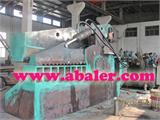Home appliance after-sales benefit chain oppresses consumers: exorbitant repair charges
For a long time, home appliance after-sales service has been the "key area" of consumer complaints. Not only are there issues with unclear pricing and lack of standards for repair parts, but also the triangular relationship between manufacturers, repair shops, and consumers is becoming increasingly imbalanced, leaving consumers in an increasingly weaker position. Aside from group complaints by consumers, it seems that all parties involved have no good strategies to improve this awkward situation.
The number of complaints in the home appliance industry each year is astonishingly high. According to data from the China Consumers Association, in 2011 alone, there were 138,819 complaints about household electronic appliances, ranking third on the list, just behind services and department store categories. Among these, quality and price became the key areas of complaint. Meanwhile, a deeply hidden implicit interest chain began to be exposed - home appliance after-sales service. Issues such as overcharging, inability to repair, and low-quality repair personnel... In the era of open market competition, consumers frequently encounter such "treatment."
It's strange that few consumers complain about rude attitudes, because face-saving projects have already become a "blue ocean." If manufacturers can't even do this well, they might not even be able to enter the threshold of competition. Therefore, when calling customer service for repairs, consumers are still treated as "Gods." The customer service will patiently confirm the fault and immediately report it to the bound after-sales repair point. The staff at the repair point will also make an appointment with the consumer for an on-site visit. However, after the consumer hangs up the phone, "strange phenomena" may appear.
Some consumers reported that after the repair personnel dismantled and fiddled with things for a while, nothing was replaced, yet they charged one hundred yuan. As for where the money went, the answer is often just one sentence - "Anyway, it's fixed." Other consumers seem to have fallen into a "quagmire," becoming regular customers at the repair center, constantly repairing and breaking down again, leading people to doubt whether the replacement parts were picked from the garbage dump - "How can they not withstand any wear and tear?"
Compared to the "gentle voice" of customer service, these subsequent "treatments" are chilling. Why are consumers only "God" in words, but in reality, their positions are reversed? Exorbitant repair costs, low efficiency, vicious cycles... What kind of chaotic market lies behind these irregularities?
Manufacturers vs Repair Points
Lack of Organization, Difficult to Control
The author learned that the general procedure for after-sales repair is as follows: After customer service receives a call from the consumer, they will immediately register it and then choose the appropriate repair point based on the consumer's address, providing them with basic information. The repair point will immediately issue a repair order, and the specific technician will contact the consumer to provide on-site service at an opportune time.
In other words, customer service only plays the role of a "relay" throughout the process. The key lies in the execution ability of the repair points. So, what form do these repair points scattered across the country take? What is their relationship with manufacturers? And how do they relate to consumers? The author once contacted a brand manufacturer's staff, who said it was a "cooperative relationship," with all after-sales repair points being designated, and all repair personnel undergoing manufacturer training. However, a worker from a repair point of the same brand stated that they were in a contractual relationship, his statement being "Repair points cannot be managed or operated by headquarters; they only handle the overall framework."
Subsequently, the author learned that in fact, most repair points exist in a private capacity. As a certain after-sales worker told the author, "Repair shops are owned by individual bosses, and the workers are hired by themselves, but these workers have all undergone manufacturer training." As for how the boss opened the shop, the worker claimed ignorance, responding to the specifics of the contract with "relevant regulations."
From this, it can be seen that within most repair points, the "boss" holds an unshakable position. Between manufacturers and repair shops, this contractual, cooperative relationship should be a unilateral "authorization" form. Workers in the shop must undergo manufacturer training, each repair person is numbered, each station also has a station code, and repair parts within the shop must be applied for by the station and then sent back from the original factory, preventing the repair point from profiting from it - of course, this is a relatively ideal state, but the facts are not entirely so. The loose cooperative relationship makes it difficult for manufacturers to effectively supervise and guide repair points.
Repair Prices Trapped in Mystery
Lack of Standards, Arbitrary Pricing
In addition to organizational irregularities, the pricing mechanism for home appliance after-sales currently lacks a unified standard, mainly including home visit fees, inspection fees, and parts fees. Consumers within the warranty period can enjoy repair services without spending money. However, once past the warranty period, for consumers, all these costs combined will amount to a significant expense.
According to statistics from Wanwei Home Appliance Network, most manufacturers' home visit fees are determined by distance, generally ranging from 30 to 100 yuan. Inspection fees are divided into major repairs, medium repairs, and minor repairs, with price differences roughly being >200 yuan, 100-200 yuan, respectively.
Related reports:
- Rural家电products need urgent after-sales solutions or introduction of third-party after-sales
- Extended warranties for home appliances have become promotional gimmicks, raising doubts about after-sales service
- Many slogans but little investment in home appliance after-sales, arduous work and low pay for grassroots repair technicians
- Unofficial channel price wars by home appliance merchants may lead to no after-sales support
- Profit black holes exist in home appliance after-sales repairs due to the absence of industry standards



